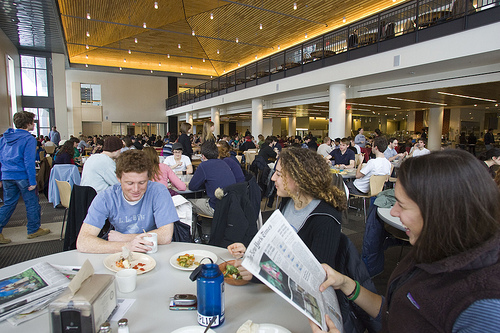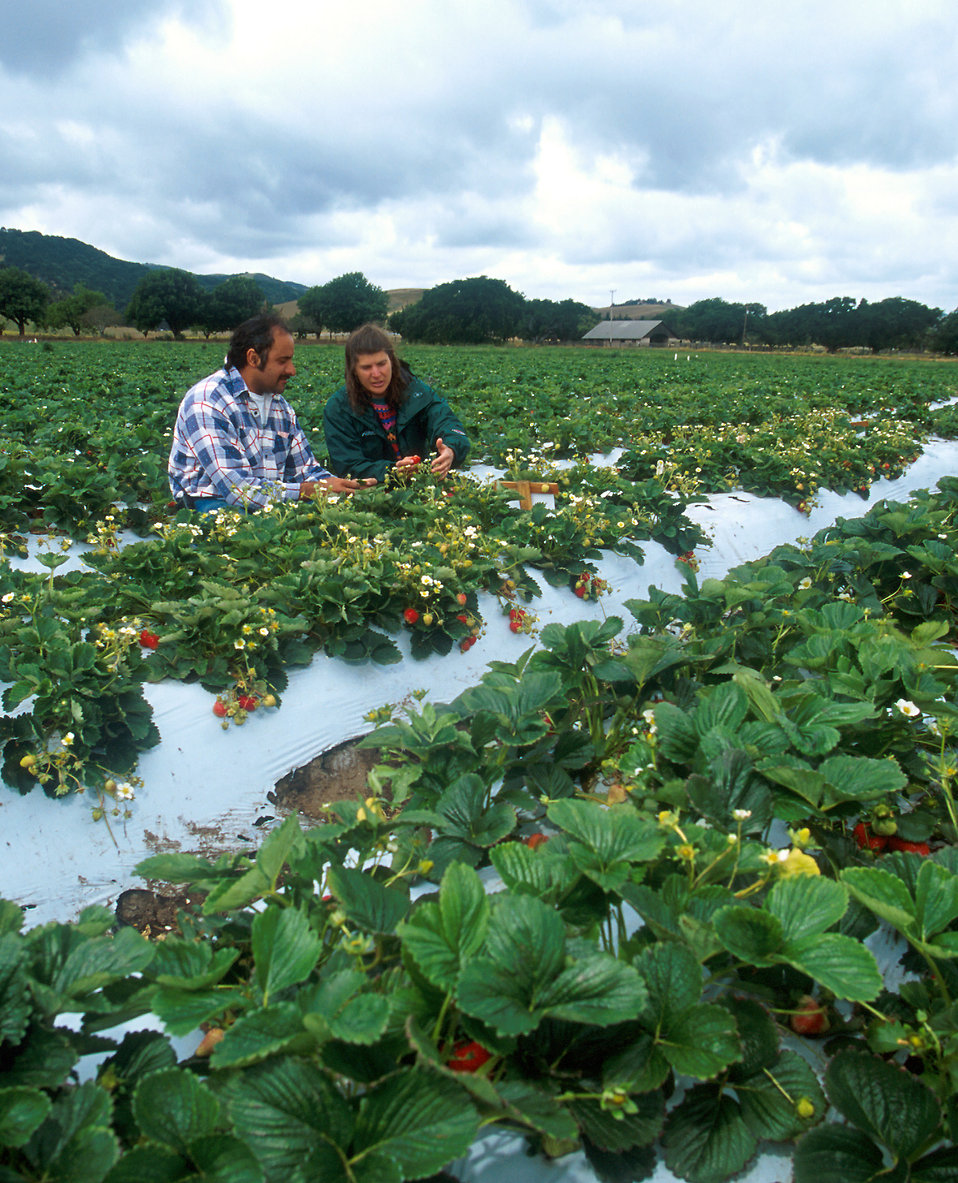In a world where the easier the better, using big corporate businesses as a means of food for dining halls at college campuses across the nation has become the norm. In an effort to become more sustainable, colleges across the country are implementing programs, challenges, and changes. More specifically, the move to eating locally is on the rise. The negative externalities that transporting food gives off is too costly for the environment. Sourcing food from local farms cuts out the pollution that would otherwise be caused by transportation.
Sterling College, University of Massechuesstes Amherst, Yale University, and Bates College are credible for their contributions in making sure their dining halls are healthy, organic, and most importantly, local. Whether it is a student-led farm or outsourcing from a local farmer, these institutions have learned how to transition from the old school food companies to local foods. They have all been very successful and continue to strive towards 100 percent sustainability.
Sterling College: Real Food Challenge
According to the Real Food Challenge website, their vision aims to shift $1 billion (20%) of existing university food budgets away from industrial farms and unhealthy food and towards local & community-based, fair, ecologically sound, and humane food sources—what we call Real Food—by 2020. One college in specific that ranks the highest for the Real Food Challenge is Sterling College. With a whopping 76 percent real food in their dining hall, 20 percent of which is grown at the college itself, they surpass any other colleges and universities participating in this challenge. On the sustainable menu page of the Sterling College website they mention, “this revolutionary approach to menu design not only keeps our student cooks on their toes, but it is also the most sustainable way to support local economies and decrease our carbon “foodprint” when sourcing and ordering products.”

https://sterlingcollege.edu/news-room/1-for-real-food-second-year/
Stockbridge School of Agriculture at the University of Massachusetts Amherst
The Stockbridge School of Agriculture at the University of Massachusetts Amherst is playing a major role in embracing the philosophy of eating locally. Rather than outsourcing, UMass has taken the job into their own hands. Their fourteen-acre UMass Student Farming Enterprise program is thriving as it rolls through its thirteenth season.
The food supplied from this farm is more than imaginable. In an article posted about student farming, Ridge writes, “Amanda Brown, a lecturer in the program, says the student farm supplies hundreds of pounds of organic veggies to the UMass dining commons each week during the growing season, including carrots, potatoes, tomatoes, and leafy greens” (Ridge). Not only does this student farm supply to the dining halls, but it also services to a multitude of other on-campus food sites and supermarkets in town. It is worth noting that a majority of why this program has been so successful is the drive from the students. Their passion to move towards more sustainable and environmentally sound methods has contributed to the longevity and continued success of this student-run farm.
Yale Farm
The Yale Farm serves as an interactive place for students, faculty, and the surrounding community. The goal of the farm is to act as an educational place to study the connection between land and food. In its efforts to be a “working model of agricultural approaches that students can participate in directly” they offer weekly workdays, incorporate it into their curriculum, have a “Seed to Salad” program, offer Lazarus Summer Internships, have Harvest pre-orientation trips, and participate in CitySeed Wooster Square Farmers’ Market.
This farm plays a big role in the dining hall’s goal of providing sustainable and local options. With sustainability at the forefront of student’s minds, it causes them to be more aware of their food choices and interested in ways they can achieve that. The Yale Sustainable Food Program continues to prosper through its continued efforts in achieving maximum sustainability through practice and education.
Bates College
As stated on the sustainability section of their dining services website, approximately 28% of Bates’s food budget is spent on local Maine products, resulting in shorter shipping distances, lower fuel usage, fresher product and increased support for the local Maine economy. Through their collaboration with PFG NorthCenter, who is invested in helping source local products, and reduce the number of materials used for packaging, they have tackled not only the challenge of eating locally but helping the economy and other environmental-related problems such as pollution and plastic.

https://www.bates.edu/news/2009/10/01/sustainability/
More recently, however, Bates joined along and created a student-led farm in 2018. It goes by the name ‘The Plot’, and all of the crops grown there go directly to Bates’s dining hall. Run fully by students, the garden is in full throttle, harvesting tomatoes, lettuce, cucumbers, summer squash, kale, and onions, according to the Bates Garden page on their website dedicated to sustainability. Bates maintains sustainability across campus and continues to rank among the most sustainable campuses in the country.
To access the full research paper, click here!
